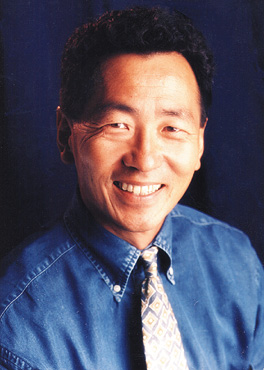|
ASIAN AMERICAN BUSINESS |
CONTACT US
|
ADVERTISING INFO
© 1996-2013 Asian Media Group Inc
No part of the contents of this site may be reproduced without prior written permission.
MICROSOFT'S ASIAN PIONEER
PAGE 5 of 10
GS: Those were their biggest accounts. Why did he give you their most important accounts?
Oki: Maybe they had no one else to give it to. I have no idea. The company was reasonably small and I was one of the early business guys.
GS: How many people were working then?
Oki: About a hundred, but 90% of them were engineers, developers.

GS: And most were focused on the IBM system?
Oki: Everything from IBM to writing BASIC compilers, COBOL compilers and FORTRAN, PASCAL... They were doing a lot of language business.
GS: Was MS-DOS a success then?
Oki: The IBM PC didn't ship until April.
GS: When did Gates put you in charge of international?
Oki: I took 30 days to figure out the opportunities of the company and said, It's impossible for one person to pay attention to those large accounts. I can do that but I don't think I can do it very well. You've got a huge opportunity here no one is paying attention to which is called international. So I wrote a business plan and said, I need a million dollars. I'm going to open up three subsidiaries in Europe and manage the relationship in Japan and if there's money left over, we'll do other things. Bill said, Okay, go do your thing. It sounds trite but the rest is history.
GS: So you were basically an entrepreneur.
Oki: They're all startups. Every country is a new startup, different culture, different people, different business variables you have to deal with, different everything.
GS: At that time, what were the biggest products you were selling?
Oki: It was predominantly language compilers--BASIC being a big part of that--and starting to try to convince the international companies that they should adopt MS-DOS as the operating system standard. The rule of thumb back in those days was, If you kind of do what IBM is doing, they'll kill you. The thinking entrenched in both Japan and Europe, which were two very significant markets, was, if IBM is licensing MS-DOS, I guess we better license something else, and that something else was usually CP/M 86.
[CONTINUED BELOW]
GS: The one Gates had originally written compilers for?
Oki: Right. So it was a real struggle but we finally won.
GS: What turned the tide?
Oki: I guess good salesmanship.
GS: Were you personally going and selling these accounts?
Oki: Every single one of them.
GS: So you were basically living in Japan and Europe.
Oki: I was living on an airplane.
GS: Did Microsoft have the resources to undertake that?
Oki: My business plan said give me a million dollars and that's all I'll need. Through a lot of dumb luck, I didn't need to come back and plead for more money, and we were managing to accomplish what I said we would accomplish. It was one of those things, we were just very fortunate these license agreements were signed and cash started coming in and we were able to grow the international business by having a million dollars worth of bootstrapping.
GS: You were a Microsoft hero, a cash cow for Gates.
Oki: Oh, absolutely.
GS: What was his reaction to all this success?
Oki: Obviously, you get more stock options and you get promoted. All that happened. PAGE 6
| "I didn't need to come back and plead for more money, and we were managing to accomplish what I said we would accomplish." |
